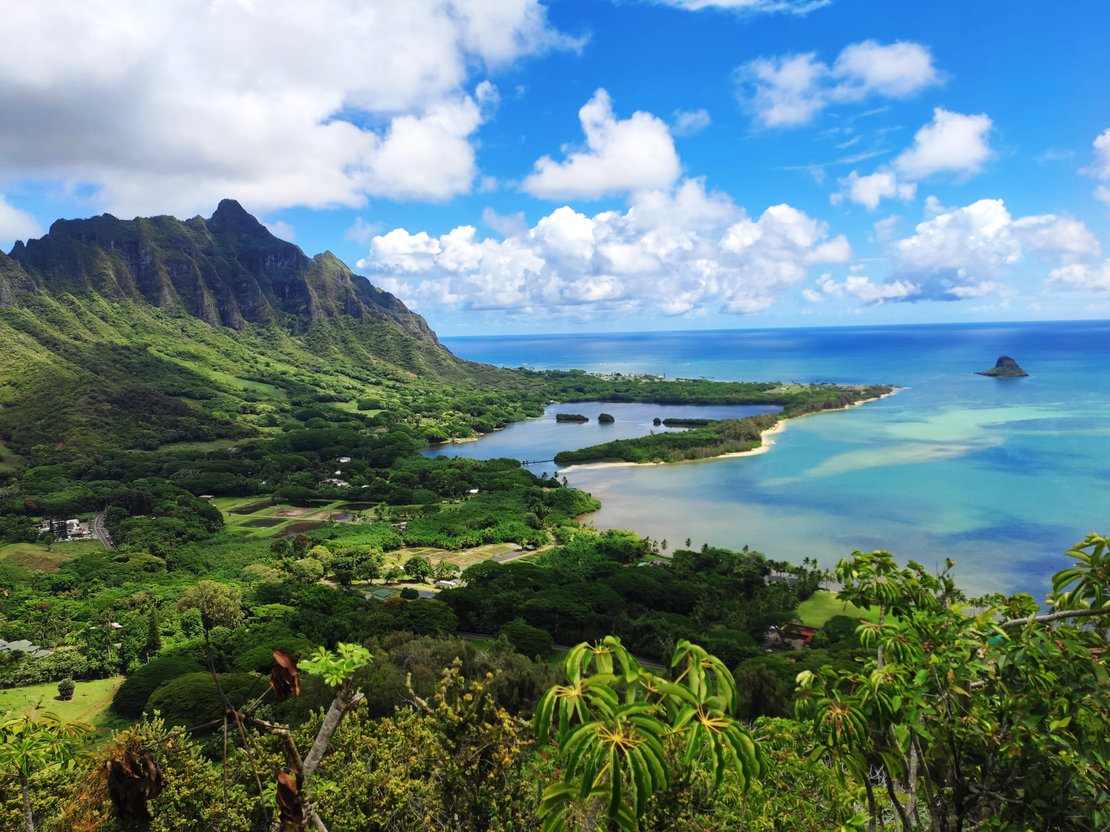
Michelle Künzli traveled to a faraway paradise for her master's thesis
She spent eight months conducting research at the John A. Burns School of Medicine at the University of Hawaii.
Interview with Michelle Künzli
Field of study: MSc Bioanalytics
Stay abroad: MSc thesis
Host institution: University of Hawai’i at Mānoa, John A. Burns School of Medicine
Semester: Fall 2022/Spring 2023
What made you decide, what motivated you to go abroad?
After reading several experience reports from previous students who had written their thesis abroad, it seemed like a very exciting experience and a great opportunity to learn about new cultures, improve a foreign language, and connect with people from all over the world. I love to travel, and the opportunity to combine the two was the deciding factor that made me want to go abroad.
Why did you choose your host institution/country?
When I visited Hawaii for the first time 5 years ago, I was so excited about the landscape, the culture and the atmosphere that I told myself that I would like to travel to this beautiful island again one day. I contacted Prof. Dr. Uwe Pieles about writing my bachelor's thesis at the University of Hawaii because I knew he had mentored students in Hawaii before. Unfortunately, Covid threw a wrench in my plans and I tried again a year later to apply for a master's thesis. I contacted Prof. Dr. Michelle Tallquist, my advisor at UH, and she suggested her current research topic. I was intrigued from the first second, even though I didn't quite understand what my goal should be.
What is your everyday life like? What does a typical day at the host institution look like?
In general, everyone is very flexible about their own working hours, and I was able to arrange my own schedule depending on the experiment, which I appreciated. So some days I could be in the lab for up to 12 hours if I had to finish a big experiment, but finish earlier on the other day and enjoy the afternoon in the ocean surfing or snorkeling.
We usually had lab meetings about once a month where everyone presented their project and current results. Here we could discuss and exchange more ideas. Every other week we had a journal club where one person presented a current paper to learn more and keep up to date in the field of cardiovascular and pulmonary research.
Tell us about your research and your research findings during your residency.
My project focused on the role of fibroblasts in the development of type II alveolar cells, which are considered stem or progenitor cells of the lung. As a first step, I developed and optimized 3D organoid systems to generate alveolospheres in a reproducible manner. I was able to identify that fibroblasts play an important role in the formation of lung organoids, but the exact mechanism was still unknown. By dividing fibroblasts into specific fibroblast types, I was able to further identify the key cell types responsible for enhanced organoid growth. Prof. Michelle Tallquist's lab is interested in the role of transcription factor 21 (Tcf21). It is expressed by lipofibroblasts and others, and loss of Tcf21 leads to defective lung development. For this reason, I knocked down Tcf21 in vivo and observed a decreased number of organoids, suggesting that Tcf21 plays an important role in lung progenitor cell development.
What surprised you the most about your stay abroad?
I was very surprised that even in paradise there is poverty, crime and violence. The number of homeless people in Hawaii is shocking and the fact that no one cares about them makes the situation even worse.
What tip would you like to give to future exchange students?
The whole preparation process before going abroad takes much more time than expected. I would recommend starting your preparations as soon as you have decided to go abroad, it is never too early. I would also recommend starting the visa application process as early as possible, as many documents are required by the host and/or home institution, especially for a US visa.
Another important point that I would have liked to know from the beginning is that you must return to your home country for two years after the J-visa expires if you receive funding from an organization to stay abroad.
What tip would you like to give to future exchange students?
Connect with locals as often as possible! They'll know the best restaurants, have local discounts (and a Costco membership), or guide you to hidden gems. Plus, it's the easiest way to learn the local language and learn about their culture and traditions.



